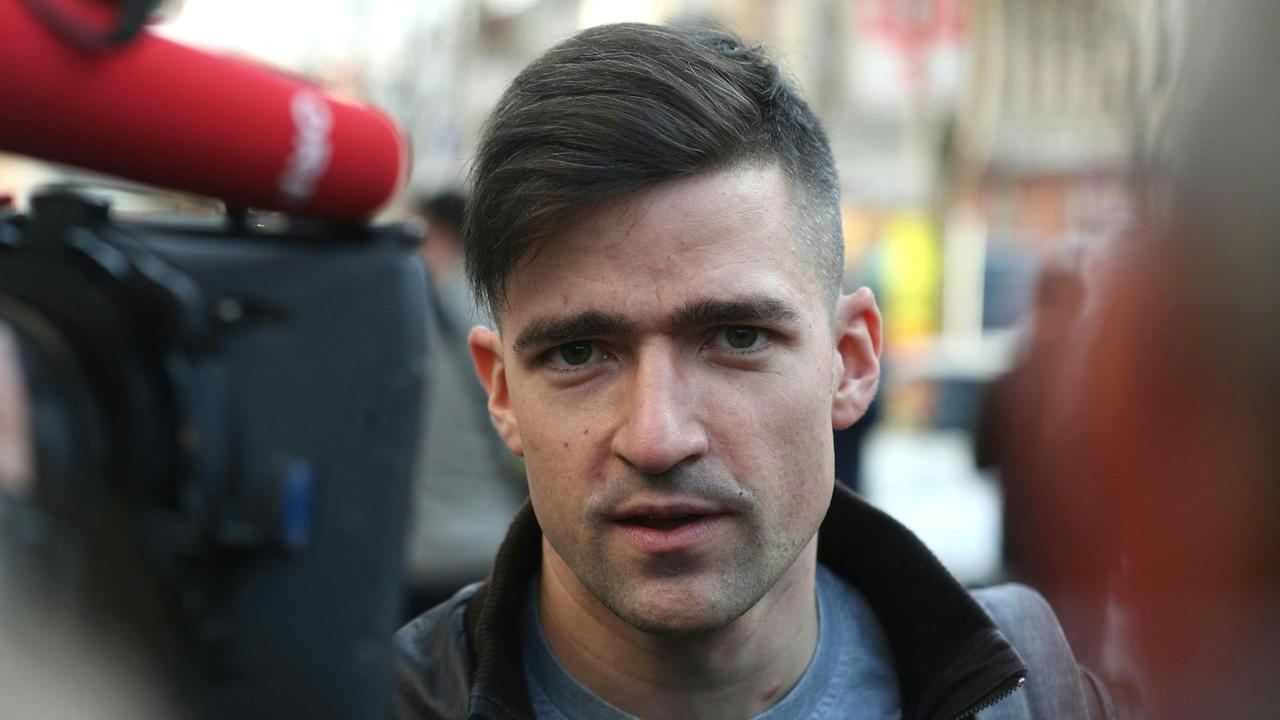One of the speakers at the Potsdam secret meeting was Martin Sellner, a leading figure in the Europe-wide network of the New Right. What ideology does Sellner spread? What connections are there to the AfD?
The right-wing extremist Martin Sellner is no longer only known in Austria. The former spokesman for the “Identitarian Movement” in Austria is now considered a central strategist in German-speaking right-wing extremism, according to Bernhard Weidinger, right-wing extremism researcher at the Documentation Archive of the Austrian Resistance in Vienna. Sellner is someone who thinks ahead and makes “big designs”. “And it is now clearly being received even in parliamentary parties,” said the Austrian researcher.
Sellner does this with ideas such as so-called remigration. According to his own statements, the right-wing extremist is currently writing a book about it. And uses the attention from the Correctiv research to advertise his concept of “remigration” on his Telegram channel. In a professionally produced video, Sellner explains what he is talking about: “A pro-German migration policy, a minus migration, a reversal of migration flows so that the Germans remain the dominant majority in their own country.”
The right-wing extremism researcher Weidinger puts it this way: “You want to go back, so to speak, to a ethnic purity that never existed, but which you project into an idealized past.”
“In the social middle diffuses”
According to Sellner, the target group of this “remigration” policy can also be people with a German passport who have not been sufficiently “assimilated”. An image of a family also appears in his video: a light-blond couple with three light-blond children posing in front of a rural property. The “Young Values Union” group also recently shared the picture on the X platform.
But right-wing propaganda is not only spreading rapidly on the Internet. In his reaction video, Martin Sellner points out that some German politicians from the CDU/CSU, SPD and Greens have already called for people to be denaturalized.
According to expert Weidinger, Sellner is not entirely wrong about the fact that certain extreme terms, ideas and concepts have now diffused into the mainstream of society: Even an idea such as the expatriation of citizens is “apparently no longer considered so otherworldly in the political discourse of the Federal Republic that it wouldn’t even occur.”
The political discourse, even beyond the AfD, is permeated by ideas that were originally only ventilated by the far right. This normalization of right-wing concepts is precisely the goal of the work of Sellner and Co., says the right-wing extremism researcher: Sellner says this again and again and quite openly, says Weidinger. He wants to establish certain terms. “Because we know that demands first have to be expressed so that they can one day be feasible.”
“Look into the hallways of parliaments”
No matter how far the idea of expatriation may have penetrated the political discourse, the right-wing term of “remigration” has so far been adopted primarily by AfD politicians and AfD organizations such as “Junge Alternative”.
The AfD board repeatedly distances itself from the extreme right, including the “Identitarian Movement”. Nevertheless, there are always contacts and meetings between actors from these circles and AfD politicians. From the point of view of Gideon Botsch from the University of Potsdam, the “identitarian movement” has even been partially absorbed into the AfD.
This is how the right-wing extremism researcher describes it rbbthat the “identitarian movement” has now lost its importance in Germany, but: “If we look at what ‘identitarian’ activists are doing today and where ‘identitarian’ ideas are found today, then we have to look into the corridors of parliament . Into the corridors of the AfD factions.” You can see ‘identitarian’ activists or people who were strongly influenced by them in the staff offices of AfD MPs. There is basically no demarcation, says Botsch.
Party politics, street activism, opinion level
Martin Sellner, however, rejects party political activity. He has also expressed contempt for parliamentarism. What Sellner is promoting is rather a patriotic triad, according to the Viennese political scientist Weidinger: “Party politics, street activism and then, so to speak, the media level, the opinion level.” Everyone should “do their own thing at their own level” – but with the awareness that “you have something like a common mission that you pursue with a division of labor and that you pursue in solidarity.”
The meeting in Potsdam ultimately also fits into this pattern – which, in addition to migration, was also said to have been about financial support for right-wing activism.
Silke Hahne, ARD Vienna, tagesschau, January 13, 2024 1:15 p.m





